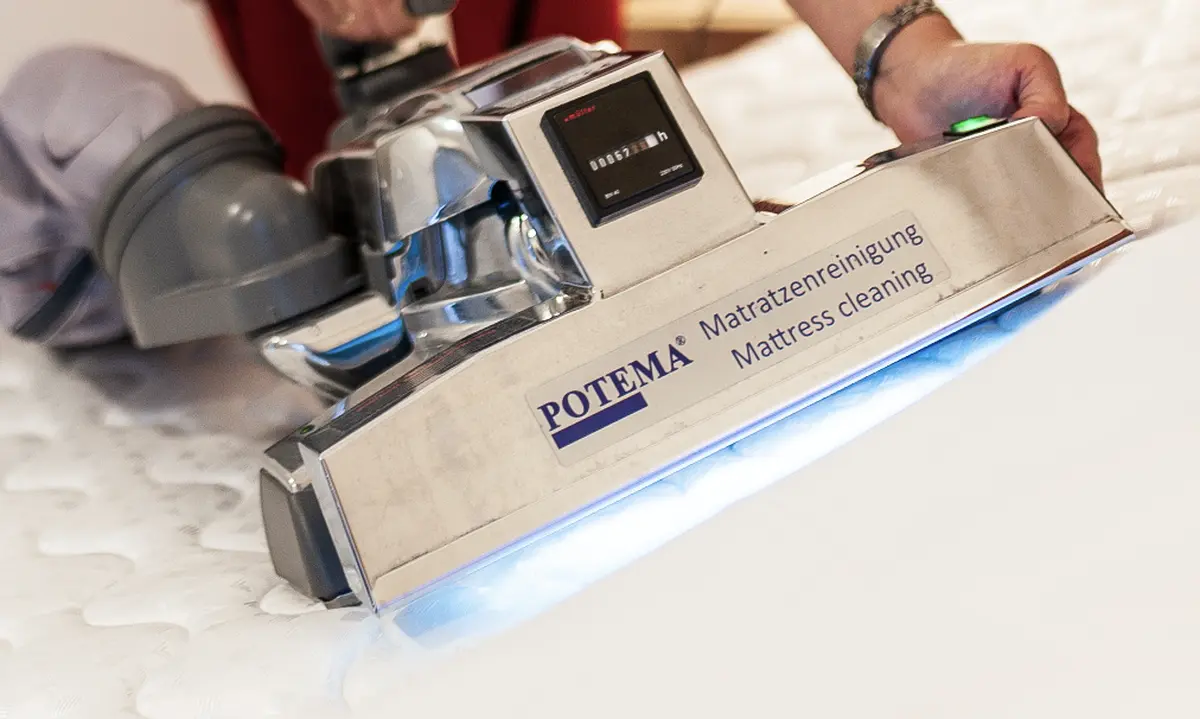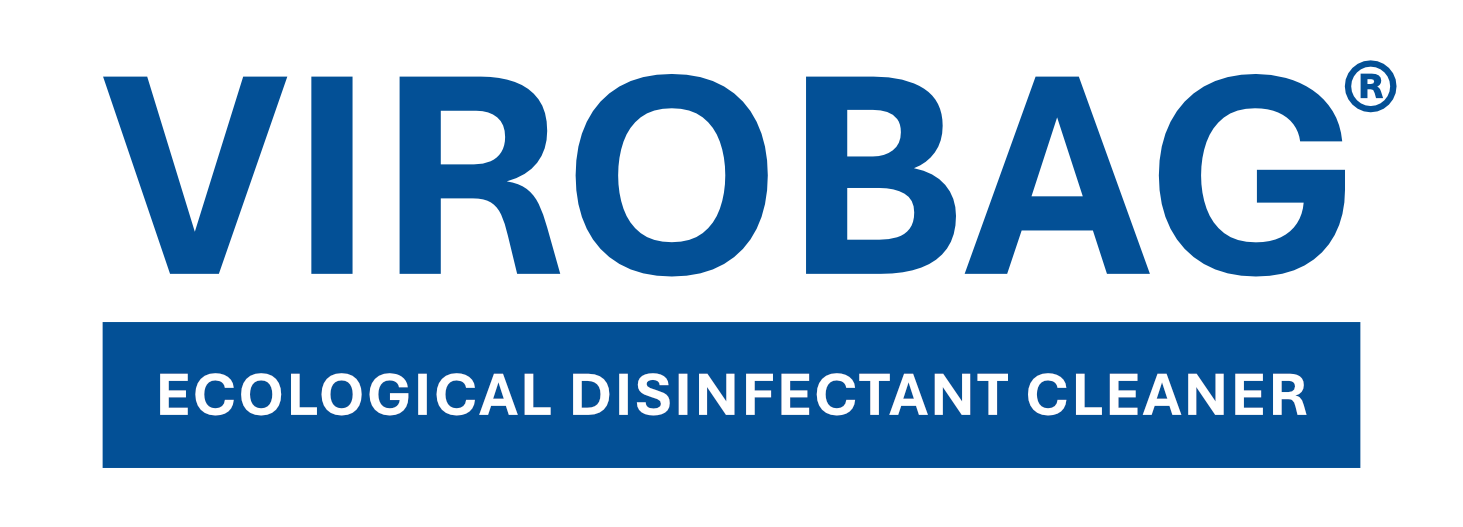Allergies
Cleaning and disinfection of mattresses and elimination of allergens by UV-C lamp or vacuum ozonation system BIO-OZON is performed on behalf of our company, which provides services to clients in the areas of dry cleaning of mattresses, deep cleaning of mattresses, mattress steam cleaning, mattress disinfection, mattress ozonation, mattress impregnation including the sale of special mattress cleaners according to your requirements in top quality according to our internal company standards, IICRC™ guidelines and standards and the professionally implemented VIROBAG® system.

 The VIROBAG® trademark defines the branded technology concept of a professionally qualified Carpet Service® implementation company focused on the regular antibacterial / antiviral maintenance, cleaning, disinfection, of synthetic, natural, wool, silk and American-made mattresses, beds and textiles in a dry way. This branded concept delivers the utmost professionalism in full synergy with maintaining ethical, environmental and quality performance standards including contractual guarantee of contractor services.
The VIROBAG® trademark defines the branded technology concept of a professionally qualified Carpet Service® implementation company focused on the regular antibacterial / antiviral maintenance, cleaning, disinfection, of synthetic, natural, wool, silk and American-made mattresses, beds and textiles in a dry way. This branded concept delivers the utmost professionalism in full synergy with maintaining ethical, environmental and quality performance standards including contractual guarantee of contractor services.
Mattress and sleep are two connected vessels. We sleep on a mattress for an average of 7 hours a day, spending 1/3 of our total life on it. A standard mattress has a lifespan of up to 5-7 years on average and a premium mattress 10-15 years, making it the longest used piece of furniture in our home.
Mites in a mattress aren’t just a threat to allergy sufferers though. If overgrown, dust mites can threaten the respiratory tract of even those who don’t suffer from dust mite allergies (yet). Even in healthy people, dust mites can cause increased fatigue, irritability, and impaired sleep quality or milder respiratory problems.
Every time we move in bed, mite feces with high allergen content mix with the air and can remain in the air for 30 minutes, which can be inhaled into our lungs, eyes, ears, etc. Many people do not realize that they can suffer from allergic conditions triggered by dust mite and dust mite feces. Bed cleaning is very important in this regard.
Allergy is a condition in which the immune system acts by hypersensitizing to certain substances, causing hypersensitivity. Although it may run in the family, the body tries to defend itself in some way when exposed to allergens. The chemicals secreted by the body during this defense cause inflammation and some discomfort, which affects our quality of life. Bed cleanliness is important in this respect.
Mattress Allergens and Allergies: A Comprehensive Guide
Allergies are one of the most prevalent health problems in the modern world. However, in conjunction with everyday items such as mattresses, they can become a subtle but significant source of discomfort. In this text we look at the issue of allergens and allergies in relation to mattresses. We will look at the main sources of allergens, prevention, choosing the right mattress and mattress maintenance to minimise allergic reactions.
What are allergens and allergies?
Allergens are substances that can trigger an inappropriate immune system response in sensitive individuals. This reaction is known as an allergy and can take many forms, from mild itching to severe respiratory problems. The most common allergens include dust, dust mites, moulds, pollens, animal hair and chemicals.
Allergies associated with mattresses are most often due to a buildup of dust mites, mold and dust particles. Mattresses that come into direct contact with the human body can be ideal environments for the spread of these allergens if they are not properly maintained or made of unsuitable materials.
Dust mites: The enemy in the mattress
Mites are microscopic arachnids that feed on dead skin cells. Mattresses are their ideal home because they provide warmth, moisture and plenty of food. For allergy sufferers, their excrement is a particular problem as it contains proteins that can trigger allergic reactions.
Mite allergy symptoms
- Rhinitis and sneezing
- Itchy eyes and redness
- Coughing, especially at night
- Exacerbation of asthma
- Skin rashes
Mold and moisture in mattresses
Mould can develop in mattresses due to excessive moisture. This can be caused by sweating while sleeping, poor room ventilation or unsuitable protective covers. Mould produces spores that can be inhaled and cause allergic reactions.
How do you recognise mould in a mattress?
- Unpleasant smell
- Visible stains or discolouration
- Aggravation of allergy symptoms while in bed
Chemicals and synthetic materials
Modern mattresses often contain various chemicals such as flame retardants, adhesives and petroleum-based foams. These substances can cause allergic reactions or respiratory irritation in sensitive individuals. Some mattresses also release volatile organic compounds (VOCs), which can be toxic with prolonged exposure.
Allergy-friendly materials
Choosing the right mattress is crucial for allergy sufferers. The materials that make up the mattress play a vital role in minimizing the occurrence of allergens.
Latex
Latex mattresses are highly resistant to dust mites and mold, especially when made from natural latex. Due to their density and structure, they prevent the settling of dust particles.
Memory foam
Memory foam is less hospitable to dust mites than traditional spring mattresses. If properly ventilated, it can be suitable for allergy sufferers.
Hypoallergenic covers
Modern mattresses often offer hypoallergenic covers that prevent dust mites and other allergens from entering the mattress. These covers are usually removable and washable, making them easy to maintain.
Preventing allergen build-up in mattresses
Proper mattress care is key to preventing allergies. Below are some simple steps to minimize the build-up of allergens.
Regular ventilation
Ventilating your mattress helps to remove moisture and prevent the development of mold. It is ideal to ventilate the room every day and let the mattress breathe freely from time to time without bedding.
Using protective covers
Waterproof and dustproof covers protect the mattress from dirt and moisture. They are easy to wash and extend the life of the mattress.
Laundry
Bed linen should be washed at least once a week at a temperature of at least 60 °C to destroy dust mites and their allergens.
Drying the mattress
Using a vacuum cleaner with a HEPA filter can help remove dust and small particles from the surface of the mattress.
Regular mattress changes
A mattress should be replaced every 7-10 years, as old mattresses tend to be more contaminated with allergens.
Mattresses and childhood allergies
Children are particularly sensitive to allergens, so it is important to pay special attention to the choice of mattress for their cribs. Hypoallergenic mattresses with protective covers and easy-care surfaces are the ideal choice.
Parenting Tips
- Make sure the bedroom is dust-free and well-ventilated.
- Wash not only bed linen but also soft toys regularly.
- Invest in good quality mattresses that are certified for allergy sufferers.
Environmentally friendly and sustainable mattresses
In recent years, there has been a growing demand for eco-friendly and sustainable mattresses that minimize exposure to chemicals. These mattresses are often made from natural materials, such as organic cotton, wool or coconut fiber, and do not contain synthetic substances or chemicals that could trigger allergies.
Benefits of organic mattresses
- Reduced chemical load
- Natural resistance to dust mites and mould
- Environmentally friendly
Technology for allergy sufferers
Modern technology brings new possibilities in the fight against allergens in mattresses. Some of these include antibacterial material treatments, cooling layers for moisture control and integrated sensors to monitor sleep quality and environment.
Antibacterial treatments
Mattresses with antibacterial surface treatments eliminate bacteria and mold that could cause allergies.
Cooling Technology
Cooling layers help reduce perspiration during sleep, reducing humidity and the risk of mold.
Air quality sensors
Some mattress or accessory products offer sensors that measure the air quality in the bedroom and help identify possible sources of allergens.
Closure
Allergens in mattresses can have a significant impact on the quality of life for allergy sufferers. Proper mattress selection, regular maintenance and the use of modern technology can significantly reduce the risk of allergic reactions. Investing in hypoallergenic or eco-friendly mattresses not only improves health but also contributes to a more sustainable lifestyle. When caring for your mattress and bedding, remember to be regular and meticulous – your health and sleep are worth it.
Download
Technical sheet POTEMA® (PDF)
Technical sheet VIROBAG® (PDF)